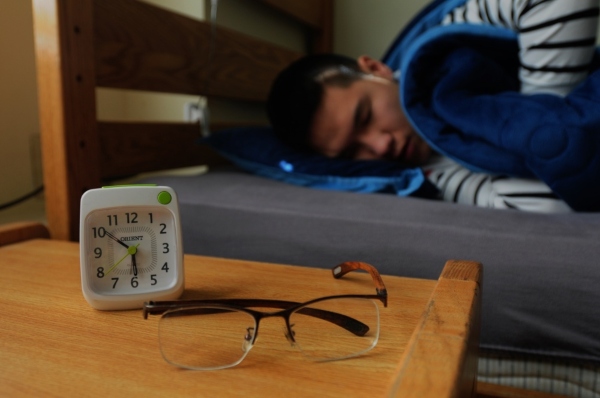Sleepless in America: These Tips Can Help You Get Better Sleep

According to the Centers for Disease Control and Prevention, about 70 million Americans suffer from chronic sleep problems. Sleep deprivation contributes to serious health issues, including obesity, weakened immunity, high blood pressure, risk for diabetes and heart disease, and more.
Learn about better sleep hygiene at Wounded Warrior Project® (WWP) health education workshops.
More than 8 out of every 10 warriors that responded to the 2020 WWP Annual Warrior Survey have sleep issues. Traumatic brain injuries (TBI) and PTSD are known contributors to sleep problems — both of which disproportionally affect injured veterans. According to the survey, more than 37% of warriors report sustaining a TBI during service, and 83% of warriors report living with PTSD.
Obtaining enough sleep and quality sleep are paramount to warriors’ health — especially when insufficient sleep can further aggravate physical and mental injuries sustained in service. In recognition of Better Sleep Month, incorporate the following tips and tricks to create better sleep practices in your life.
- Create a cool, comfortable, and dark sleeping environment.
- Limit or avoid screen time at least 30 minutes before bed. By avoiding cellphone and TV screens before bed, you’re helping to prepare your body for a more restful night’s sleep.
- Develop a relaxing bedtime routine. Spend the final hour before bed winding down with reading a book, taking a hot bath or shower, or trying some breathing exercises.
- Avoid stimulants like alcohol, caffeine, and nicotine before bed. Try to stop consuming stimulants in the early afternoon so it doesn’t affect your ability to fall and stay asleep.
- Incorporate regular exercises into your daily routines. Brisk walking, strength training, and even yard work can make you feel tired at the end of the day and help you fall asleep faster.
- Avoid large meals or foods that cause digestive distress before bed. Eating a large meal before bed makes it harder to fall and stay asleep because the body is focusing on digesting, not sleeping. If you’re hungry, have a light snack, but try to stop eating at least two hours before bedtime.
- Go to bed when you are tired! Going to bed wide awake can make you feel restless, and it may take you longer to fall asleep.
- If you haven’t fallen asleep in 30 minutes, leave the bedroom to reset your mind. Do a quiet activity in another room for at least 15 minutes or until you feel sleepy — then go back to bed and try for sleep again.
For more ways to improve sleep through physical wellness, visit the WWP newsroom and stay tuned into WWP’s social channels.
Contact: Vesta M. Anderson – Public Relations, vanderson@woundedwarriorproject.org, 904.570.0771
About Wounded Warrior Project
Since 2003, Wounded Warrior Project® (WWP) has been meeting the growing needs of warriors, their families, and caregivers – helping them achieve their highest ambition. Learn more.